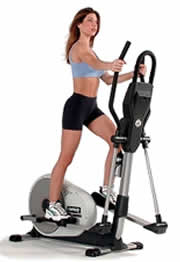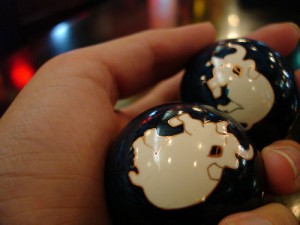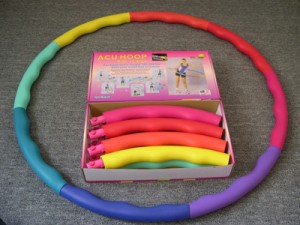
photo credit: allellipticals.com
College students love to work out. Go to the campus recreation center and you’ll find students engaging in a variety of activities. Some of the most popular are running on the treadmill and “cycling” on the ellipticals (or whatever you call that motion). All that energy exertion is great for those looking to burn calories and build endurance and slim down, but it’s lost in the power used to operate the machine. So it’s not surprising that the students of Cal State San Bernadino are now a part of a new concept: using that energy to power a building. After all, if they can make hamsters run around in wheels to generate electricity, why can’t humans pump ellipticals to do the same?
When I first heard of this idea, I remembered actually thinking a similar thought before. I don’t know about the resources needed to set up the infrastructure so that the energy used is directed to a power grid, but if it’s not too much, this is certainly an interesting way of getting your electricity! For the CSUSB students’ fitness center, equipment cost $15,000. Not too bad. There’s a one-to-one ratio of how many minutes a typical workout can power a laptop for – imagine that: you use your laptop for five hours a day and you have to work out for five hours to power it. That would certainly teach you to conserve energy. The same time will power a flourescent bulb for three times as long. It really is hard work to create electricity, but the students at the CSUSB fitness center manage to provide that building’s power.

photo credit: thaisilvestre on flickr
This reminds me of a product I saw once, which was only a concept at the time. You know those Chinese stress balls (baoding balls)? They’re two stone or metal balls that you roll around in the palm of your hands. It works muscles in your hand that don’t get used much and improve dexterity and flexibility of your fingers. Well, one guy decided to fit batteries inside them, then using the kinetic energy created by moving them around, charge the batteries. Not a bad idea, if it’s effective. Then going for a bike ride could mean more than just exercise, but could potentially power the very light on it that blinks in the night. Hula hooping would be more than child’s play or a test of skill and could charge batteries for your camera or alarm clock. When you start to see the world in those terms, every form of kinetic energy becomes a potential way to convert it to stored energy.
The question is, is it effective? Would making a bicycle that can power its own lights, and perhaps some batteries, be worth the extra cost in design and manufacturing? I hope it is. It’d be a great way to encourage a fattening population to stay active. Something as simple as having one of those ab roller machine-type things that powers batteries can keep people moving by putting their feet on the handlebars and rolling it back and forth. Talk about a lazy man’s workout.

 I spent 40 minutes last night using my Acu hoop and boy am I sore! Actually, it’s borderline sore/in pain, I can’t really tell… there are definitely times that my sides get touched and it hurts, but it’s not constantly there and most of the time I forget it hurts. I shouldn’t have gone so vigorously or so long after not using it for quite awhile now. Next time I will go for an easier pace until I can build up to something more.
I spent 40 minutes last night using my Acu hoop and boy am I sore! Actually, it’s borderline sore/in pain, I can’t really tell… there are definitely times that my sides get touched and it hurts, but it’s not constantly there and most of the time I forget it hurts. I shouldn’t have gone so vigorously or so long after not using it for quite awhile now. Next time I will go for an easier pace until I can build up to something more.


